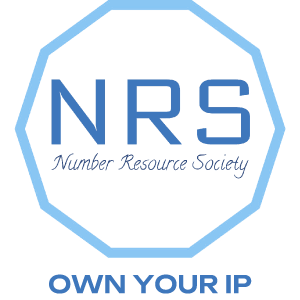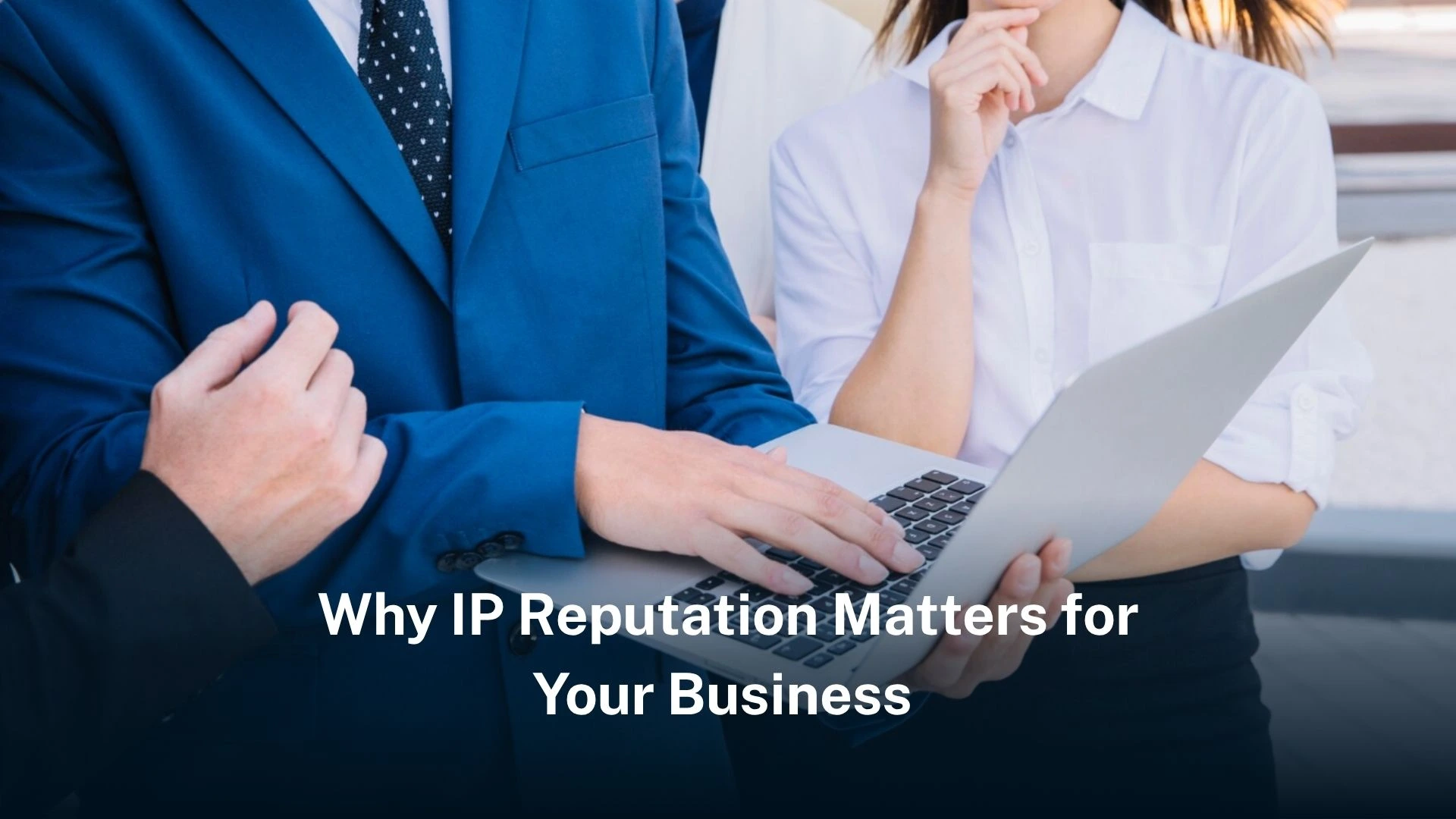When your business is online, every part of your setup must work. One part that many teams do not think about is the IP reputation. This means how other systems on the internet view your IP address. If your IP has a bad record, you will face problems. It becomes hard to send emails. It also gets harder to run ads. Some services may block your access. Your IP connects your website, servers, and users to the wider web. Many systems check the IP before they accept your emails or let your traffic through. If the IP looks risky, they will block or slow your activity. Some will place your emails in the spam folder. Others may stop your pages from loading. Some apps may not let your service connect. This stops your team from doing its job. It may affect your clients too. They may not get your updates. They may not open your messages. A bad IP causes trust issues. This leads to lost time and lost income. Many firms only learn this after they face a block. By then, it is hard to fix fast.
How Bad IP Reputation Blocks Email and Access
IP reputation is most important when you send emails. When you send out a message, the receiver’s system looks at your IP address. If your IP has been linked to spam before, the system will block your message or move it to the spam folder. This happens even if your email is clean and safe. As a result, fewer people read what you send. Your message does not reach the inbox. People do not trust emails in the spam folder. Many will not even open them. This makes your email marketing less useful. It also hurts your image. If people never see your emails, they stop caring about your brand. Your sales can go down. Your team may have to spend more time trying to fix the issue. You may need to switch IPs or change your tools. This adds extra cost and slows down your work.
A bad IP can also block users from reaching your website. Some networks use filters to stop risky traffic. These filters look at IP lists. If your IP is on one of those lists, you may lose access. This is common in business settings where companies protect their systems with strict rules. Their filters check every connection. If your IP has a bad record, your site will not load for them. Your emails may bounce. Your updates may not be seen. People may think your site is down or broken. This causes problems with deals, leads, or support. Your ads may not show. Your cloud tools may not work. Your APIs may fail. These blocks can hit many parts of your business at once. When one system flags your IP, others may follow. The problem spreads fast across email, web access, and digital tools. This makes recovery harder. You must fix the source and check every service. You must wait for the IP to clear. During that time, you lose chances to grow.
Shared IP Risks and Why Dedicated IP Helps
Many businesses choose shared hosting or cloud services to save cost. These setups often give the same IP address to many users. Each user shares the same network space. If one of them sends spam, joins a botnet, or attacks a website, that IP will be flagged. Once the IP gets a bad score, every user who shares it will face the same blocks. Your emails may go to spam. Your website may load slowly or not at all. Your services may be denied by other systems. You may not even know why at first. You may follow all rules and still face issues. The damage comes from others on the same network. This makes shared IPs risky. You do not control what others send. You cannot fix what they break. You wait while your traffic gets blocked or slowed.
Some companies decide to use a dedicated IP address. This IP belongs to your business alone. No one else uses it. You can send emails, run websites, and connect to tools from your own IP. You can also set limits, track usage, and make changes when needed. You know what you send. You know who logs in. This makes it easier to keep your IP clean. You reduce the chance of getting listed on spam filters or blacklists. When problems happen, you can act fast. You do not need to wait for others to fix things. You can prove your traffic is safe. You can contact support teams with a clean record. Over time, your IP builds a good reputation. Other systems learn to trust your traffic. You get more control. You also get more safety for your digital tools. A clean IP helps your business grow without hidden risks from shared systems.
How Cybersecurity Issues Harm Your IP Trust
Cybersecurity issues can hurt your IP reputation fast. Attackers often search for IP addresses with no bad record. They take clean IPs and use them to send bad traffic. They may get into your system. They may find a weak point. Then they use your IP to send spam. They may send malware. They may run other attacks. Filters then mark your IP as unsafe. You may not see this right away. Your system may still work. Some users may lose access. Some emails may not go through. Some apps may stop working. Some websites may block your IP. These problems show your IP has been flagged.
When your IP gets flagged, your traffic is checked more. Each request takes longer. Some requests may be blocked. This slows down your tools. Your customers may see errors or timeouts. Some platforms stop your API access. Others limit how often you can send data. These actions protect their own systems. They treat your IP as a risk. You may not know until people complain. Users report that services do not work. Teams check logs and find blocks from third-party tools. At that point, the issue has grown. Trust from users and partners may already be lost.
To avoid this, you must watch your IP traffic often. Check your logs. Look for spikes, strange sources, or traffic at odd hours. Set alerts that tell you when use changes fast. Track how systems behave. If an IP sends too much data or hits too many errors, stop it. Shut down ports you do not use. Block tools that do not match your traffic type. Review every device that connects to your network. Each step helps protect your IP. If you find a breach, act fast. Remove the threat. Check every system. Change passwords. Patch your software. These actions keep your IP clean. They also help you keep trust with users. One small issue can lead to a big loss. You must act early. Keep your systems safe. Check them often. Do not wait for others to tell you there is a problem. Your IP is part of your business. It needs the same care as your data or staff. A trusted IP means smoother work, safer tools, and better service for your users.
Blacklists, Filters, and Their Impact on Reach
Many blacklists check IP addresses for spam, malware, or bot traffic. Email servers use these blacklists. Content filters and fraud tools use them too. When your IP is on a list, your emails do not reach people. Your messages are blocked. Your IP may be stopped in large areas. Some popular email platforms may block you. Some blacklists share their data. This means more systems will block your IP. Removal is not fast. You must first find the cause. You must fix the issue. Then you ask to be removed from the list. This takes time. You may wait days. You may wait weeks. During this time, your emails do not work well. Your users may not hear from you. Your team may not get replies. Your business may lose sales. Your services may slow down. These problems grow while you try to fix them.
Advertising and Payment Systems Check Your IP
IP reputation matters in online ads. Ad systems check IPs to find bots or fake users. If your IP shows strange traffic, the system may stop your ads. Your ad reach may drop. Your traffic may fall. Your ads may not show at all. Your costs may go up. Some ad platforms may block your account. This happens when your traffic looks risky. Many businesses use tools like scripts or proxies. These tools can cause problems. You may not break any rule, but your IP may still get blocked.
Payment systems also check IP reputation. Fintech apps use IP data to find fraud. If your IP looks unsafe, your payments may take longer. Your cash flow may slow down. Your users may not get updates on time. Some banks may flag your account. Some may freeze it. They look at many signs. IP risk is one of them. You must stop bad traffic before it spreads. One small problem may cause big trouble. Systems that check money and ID use your IP to decide what to do. You must keep it clean to avoid risk.
SEO and Web Ranking Depend on Clean IPs
Search engines may reduce your ranking if they detect strange traffic from your IP. This happens when bots or scripts run too many requests. Your website can be seen as low-quality or part of a link farm. When you try to fix it, the damage may last. Rankings fall and your traffic drops. If you run an SEO strategy, your IP must stay clean. This helps protect your domain and keeps your efforts working.
How to Monitor and Protect Your IP Health
One way to protect IP reputation is to set up rate limits. This controls how many requests your system sends. It helps reduce bot-like patterns. You can also block suspicious IPs that try to connect too often. Logs help you check who accesses your system. Good monitoring lets you stop issues before they grow. You should secure your mail servers. Use SPF, DKIM, and DMARC to prove your emails are safe. This builds trust and protects your sender score. Regular scanning of your IP health is key. Tools show if you are on a blocklist. You should check this often. Do not wait for a client to tell you about delivery issues. Fix problems early to avoid damage. If you use third-party services, make sure they care about IP reputation. Choose providers with clean records. Ask about their sending habits and their list hygiene. Poor partners may harm your IP even when you follow all rules.
Why Every Team Member Should Understand IP Risks
Your team must understand why IP reputation matters. Train your staff to follow safe sending rules. Help them spot phishing and spoofing signs. When all parts of your company work together, the IP stays healthy. Bad reputation spreads fast. You must act early. Watch your metrics, read the logs, and review third-party tools often. These habits help you protect your digital space.
Use Experts to Check and Improve IP Status
If you are unsure about your IP status, hire experts. They can audit your setup and find weak spots. They use tools to test delivery, blacklist status, and reputation scores. They give you a report and a plan. This helps you fix small issues before they become big problems. A clean IP makes your business more trusted. It improves how your emails, ads, and apps work. Reputation is about trust. Your IP address is part of that trust. Customers, partners, and systems use it to decide if they will work with you. When your IP has a bad history, it blocks those connections. This slows your business and harms your brand. You need to keep your IP clean, active, and trusted. This helps you stay ahead in a digital world.





Hi there! I’m at work surfing around your blog from my new iphone!
Just wanted to say I love reading your blog and look forward to all
your posts! Keep up the great work!
I have read so many posts on the topic of the blogger lovers however this article is really a nice article, keep it up.
This post will help the internet viewers for setting up new
website or even a blog from start to end.
That is really fascinating, You are an excessively professional blogger.
I’ve joined your rss feed and look forward to seeking extra of your great
post. Also, I have shared your web site in my social networks
Spot on with this write-up, I absolutely believe that this website needs much more attention. I’ll probably be returning to read through more, thanks for the information!
What’s up everyone, it’s my first visit at this website, and post is genuinely fruitful in support of me, keep up posting such articles.
Greate article. Keep writing such kind of info on your blog. Im really impressed by your site.
Hi there, You’ve done an excellent job. I’ll certainly digg it and in my opinion recommend to my friends. I am sure they’ll be benefited from this web site.
Wow, incredible weblog structure! How lengthy have you been running a blog for? you made blogging look easy. The overall glance of your website is wonderful, as neatly as the content material!
Very energetic blog, I loved that a lot. Will there be a part 2?
I think the admin of this web page is actually working hard in support of his website, because here every data is quality based stuff.
I enjoy what you guys tend to be up too. This type of clever work and exposure! Keep up the excellent works guys I’ve incorporated you guys to my own blogroll.
Excellent way of telling, and nice piece of writing to obtain facts on the topic of my presentation topic, which i am going to deliver in institution of higher education.
I am sure this post has touched all the internet people, its really really good post on building up new web site.
I’ve read some just right stuff here. Definitely value bookmarking for revisiting. I surprise how much effort you set to create the sort of magnificent informative website.
Hello, I log on to your blogs like every week. Your story-telling style is awesome, keep up the good work!
Hi, I think your website might be having browser compatibility issues. When I look at your website in Firefox, it looks fine but when opening in Internet Explorer, it has some overlapping. I just wanted to give you a quick heads up! Other then that, awesome blog!
Wow that was strange. I just wrote an extremely long comment but after I clicked submit my comment didn’t show up. Grrrr… well I’m not writing all that over again. Anyhow, just wanted to say superb blog!
I have read so many articles regarding the blogger lovers but this paragraph is genuinely a nice piece of writing, keep it up.
Greetings from Idaho! I’m bored at work so I decided to browse your website on my iphone during lunch break. I love the information you provide here and can’t wait to take a look when I get home. I’m amazed at how fast your blog loaded on my mobile .. I’m not even using WIFI, just 3G .. Anyways, good blog!
I needed to thank you for this very good read!! I certainly enjoyed every bit of it. I’ve got you book-marked to check out new stuff you post…
Wow, superb weblog structure! How long have you ever been running a blog for? you make running a blog look easy. The entire look of your site is magnificent, let alone the content material!
Superb post however , I was wanting to know if you could write a litte more on this subject? I’d be very thankful if you could elaborate a little bit further. Bless you!
Hello, Neat post. There’s an issue with your website in internet explorer, may check this? IE nonetheless is the marketplace leader and a huge element of other people will miss your magnificent writing because of this problem.
Hurrah! After all I got a webpage from where I be capable of genuinely take useful information regarding my study and knowledge.
It’s hard to come by experienced people on this topic, however, you seem like you know what you’re talking about! Thanks
This design is incredible! You certainly know how to keep a reader amused. Between your wit and your videos, I was almost moved to start my own blog (well, almost…HaHa!) Fantastic job. I really enjoyed what you had to say, and more than that, how you presented it. Too cool!
I think this is among the most significant information for me. And i’m glad reading your article. But should remark on few general things, The site style is perfect, the articles is really great : D. Good job, cheers
Good site you have here.. It’s difficult to find high quality writing like yours nowadays. I seriously appreciate individuals like you! Take care!!
Pretty section of content. I just stumbled upon your blog and in accession capital to assert that I acquire actually enjoyed account your blog posts. Anyway I’ll be subscribing to your feeds and even I achievement you access consistently rapidly.
Thanks for sharing your thoughts on %meta_keyword%. Regards
Great article.
I’m really enjoying the theme/design of your website. Do you ever run into any internet browser compatibility issues? A handful of my blog visitors have complained about my website not working correctly in Explorer but looks great in Chrome. Do you have any tips to help fix this issue?
I don’t know if it’s just me or if everyone else encountering problems with your blog. It appears as if some of the text within your content are running off the screen. Can somebody else please comment and let me know if this is happening to them as well? This could be a problem with my browser because I’ve had this happen before. Kudos
I have been surfing online more than 2 hours today, yet I never found any interesting article like yours. It is pretty worth enough for me. In my view, if all webmasters and bloggers made good content as you did, the web will be much more useful than ever before.
Greetings, I do believe your web site may be having internet browser compatibility issues. Whenever I take a look at your site in Safari, it looks fine however when opening in IE, it has some overlapping issues. I simply wanted to provide you with a quick heads up! Besides that, great website!
Howdy! I just wish to give an enormous thumbs up for the great info you might have right here on this post. I will be coming back to your blog for extra soon.
What i don’t understood is in fact how you are now not actually much more smartly-favored than you might be now. You’re so intelligent. You recognize thus considerably when it comes to this matter, produced me personally believe it from a lot of various angles. Its like men and women are not interested unless it’s one thing to accomplish with Girl gaga! Your personal stuffs excellent. Always deal with it up!
Hello Dear, are you genuinely visiting this site daily, if so after that you will definitely obtain pleasant knowledge.
Hello! Do you use Twitter? I’d like to follow you if that would be ok. I’m definitely enjoying your blog and look forward to new updates.
I know this web page presents quality dependent content and other material, is there any other web site which presents such things in quality?
Youre so cool! I dont suppose Ive read something like this before. So good to seek out anyone with some authentic ideas on this subject. realy thank you for beginning this up. this web site is one thing that’s needed on the internet, somebody with a little originality. useful job for bringing one thing new to the web!
Very nice post. I just stumbled upon your weblog and wanted to mention that I’ve truly loved browsing your weblog posts. After all I will be subscribing on your feed and I am hoping you write again very soon!
I take pleasure in, cause I discovered just what I was having a look for. You have ended my 4 day long hunt! God Bless you man. Have a great day. Bye
Hey There. I found your weblog using msn. This is a very neatly written article. I will make sure to bookmark it and come back to learn more of your helpful information. Thanks for the post. I’ll definitely comeback.
Very nice post. I just stumbled upon your weblog and wished to say that I have truly enjoyed browsing your blog posts. After all I’ll be subscribing to your feed and I hope you write again very soon!